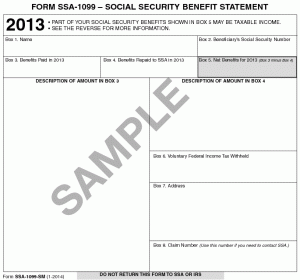
If you have an aging parent who is beginning to show signs of Alzheimer’s or dementia, it’s important to step in and assist with taxes so they don’t wind up in trouble with the IRS.
______________________________________________________________________________
If you have elderly parents you may find yourself in the position of having to assist them with their tax returns. If you have a parent showing any signs of dementia, it’s especially important for you to step in and offer assistance. Believe me, I understand that there’s a big difference between “offering” assistance and being “allowed” to assist. Parents can be stubborn, especially about money. But if your parent is showing signs of Alzheimer’s disease or dementia, you really do need to step in and make sure that their paperwork is taken care of. Here are some tips to help you make sure you’ve got your bases covered.
If your parent has been working with an Enrolled Agent or other tax professional, talk to them first. They should be able to provide you with a list of all the documents that your parent has used on past returns. An old return, preferably the most recent one but even one a few years old, will give you a good clue as to what documents your parent usually needs. Here’s a list of the most common items found on senior tax returns:
1. You need to find the Social Security Statement. The form is called a 1099SSA. It should be mailed by January 31. If you can’t find it after February 1st, you can order a replacement at this web address: https://secure.ssa.gov/apps6z/i1099/main.html. It looks like this:
This sample picture is not in color, but the most distinctive thing about this statement is that it has pink on it. It comes in one of those envelopes that you have to tear off the sides to open up the paper—the envelope will be white. It’s not a standard size.
The 1099SSA statement is important because for some seniors, their Social Security income is taxable—for others it is not. It all depends upon how much money they make.
Tax Prep Tip: Use tax software and always input the Social Security income even if it seems obvious that the SS income won’t be taxable. Software will do the calculation about the tax for you. And should something turn up later and the IRS contacts you about income that you missed, by reporting the Social Security income even though it wasn’t taxable—you’ve protected yourself from underreporting fines on that income.
2. Another statement many seniors receive is the 1099R – for pensions and annuities. Some seniors won’t have any while others could have 10 or more. Most seniors will have one or two each—a pension or 401(k) from a job and an IRA.
Tax Prep Tip: Look at box 2 of this statement, often it is blank. Usually, a blank box means zero, but on a 1099R-a blank box could mean that the company didn’t compute what was taxable. Many tax software programs will automatically count everything in box 1 as taxable if you leave box 2 blank when inputting the 1099R. You can test this by looking at line 16a and/or 16b of the 1040 to see if the number carried over there. On the 1099R form there is a checkbox for “taxable amount not determined”. If that’s checked, the default is to tax the whole amount. There are formulas for determining a taxable amount on these types of 1099s. If you’re dealing with a large pension, it would be worth consulting with an EA to figure the taxability.
3. Investment Income: Many seniors have investment income. You’re going to want to look for something called a 1099B, 1099-DIV or a 1099-Combined from. These come in all kinds of shapes, sizes and colors. Many seniors have more than one investment firm; just because you find one statement doesn’t mean you have them all. Many of these firms deliver their statements online. If your senior parent used to be computer savvy, be sure to check online for these documents.
Also seniors, more so than younger investors, tend to hold individual stocks outside of the big investment firms. Look for individual 1099-DIV statements from Met Life, Pfizer, Ameren and the like. Many of these statements are still mailed, and they often come in smaller envelopes with the tear off sides. They should say, “Important Tax Document” on the envelope, but the envelopes do sort of look like junk mail so you may be combing through the recycling bin for these.
Tax Prep Tip: Investment documents aren’t due out until February 15th. Be sure to allow enough time for all those statements to be delivered before you start your parent’s return. Some of those brokerage house statements can be over 20 pages long. While most of the information you need is all on page 2 or 3—there’s a reason they are sending you 20 pages of information. If you have “gross proceeds from sales of investments” – you need the back 20 pages to determine the basis of that stock sale. If you have non-taxable dividends from municipal bonds – you need the back 20 pages to determine if that money is taxable to your state. Brokerage houses don’t send you all that stuff because they hate trees. If you get a statement like that and you don’t understand it, it’s worth the money to get professional help at least once so you know where everything goes
4. Bank interest statements. These are called a 1099-INT. Seniors are more likely to have CDs than younger taxpayers, and they shop around for the best interest rates. Don’t be surprised to find multiple bank statements.
Tax Prep Tip: Some banks put all of the CDs and their interest on one combined bank statement. Other banks send separate statements for each CD—making it look like you’ve just got duplicates of the same statement. If it looks like you’ve got duplicates—check the account number carefully to make sure you’re reporting everything (and not double counting the same one!) List the interest earned on each statement as a single line item. If the bank is sending you statements in separate envelopes, the IRS is also getting that information separately. If you combine the amounts, it won’t match the IRS numbers and could cause you to get a letter.
5. State programs: many states have tax credits for senior citizens. Here in Missouri, we have a property tax credit for low income seniors. There are programs like that in many other states as well. Even if your parent’s income is too low to require filing a federal return, be sure to check to see if he or she may qualify for some tax benefit in your state. You’ll want to keep an eye out for real estate tax receipts or rental income statements.
It can be difficult helping a parent at tax time. Half the battle is knowing what to look for and where to find it. The harder part is often persuading your parent that she needs help! But if your parent is confused, especially about financial matters, you need to step in and make sure that her taxes are taken care of now. It’s much better than having to deal with the IRS on her behalf later.








